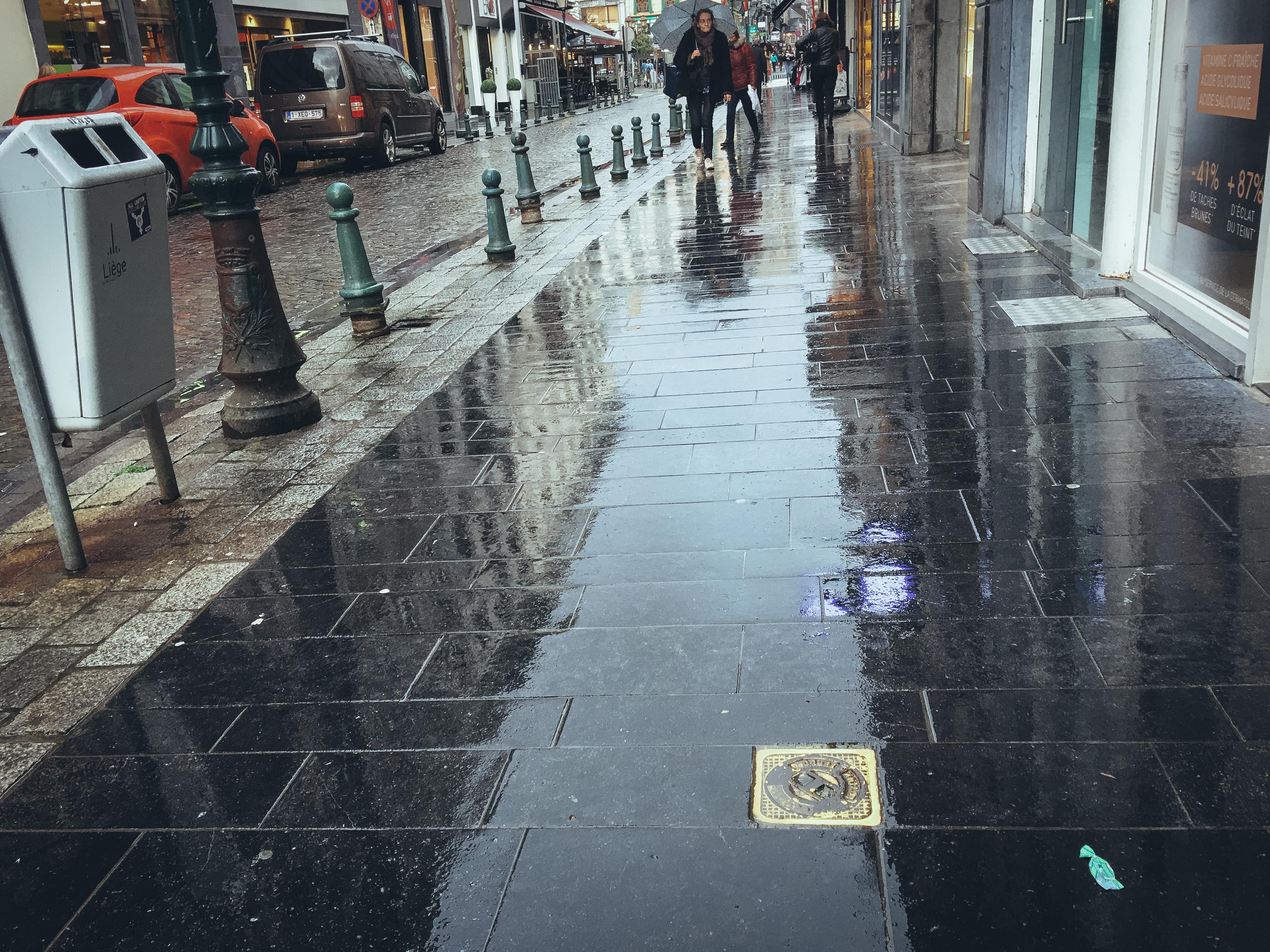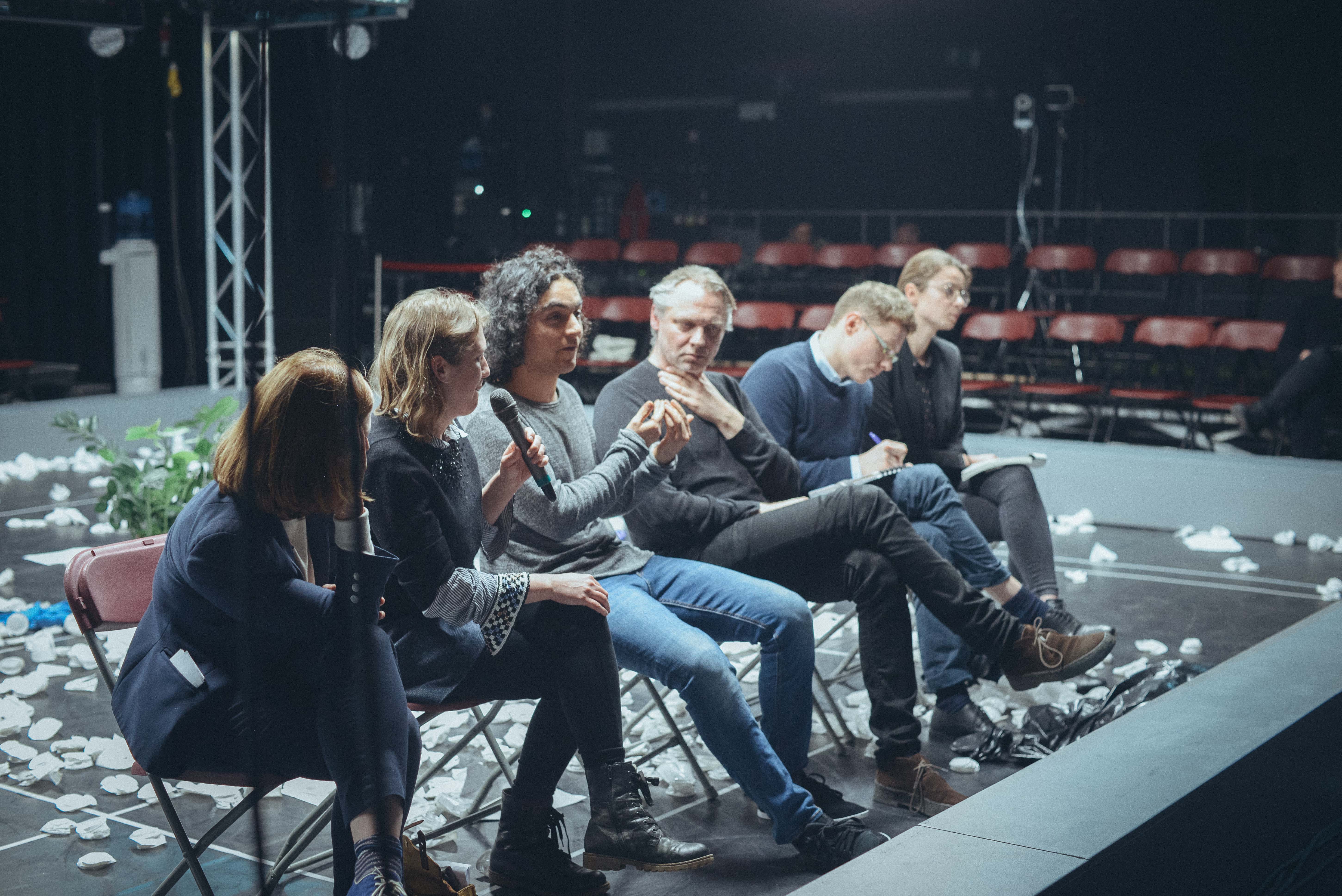This must be one of the strangest trips I have ever made, not only for the purposes of our project, but in my life in general. For better or for worst, I have decided to go on with traveling to Liège to attend the Atlas of Transitions Festival, organised by Théâtre de Liège, our Belgian partners. Since the event wasn’t cancelled (yet), I felt obliged to go, despite the fact that in my country everything had already started shutting down because of the Covid-19 pandemic. On my way to the airport, I find myself agitated, constantly under alert. I am leaving Athens and my family on a very critical moment and I struggle to suppress my anxiety and fears for the near future. At the airport, people around me seem lost and confused, as if they could not exactly comprehend what is happening. Cautious and reserved, yet trying to maintain their openness under the veil of a forced joy and overstressed politeness. The most suitable word to describe my feeling during the trip and as I board my train from Brussels to Liege, is numbness. I arrive at the city’s main train station.

In resentment, I enter the bus to the centre, only to be surprised by the casual behaviour of my co-passengers. I start to think that maybe people here are not that worried about the virus or at least not for the moment…
Due to an unfortunate turn of events, I find myself waiting in the street for a couple of hours, before I get access to my room. It’s already late afternoon and the centre’s narrow alleys are almost empty. I hear loud music coming from a nearby bar. Some youngsters are throwing a massive party. My afore-mentioned feeling is validated anew. Could it be that life here hasn’t changed at all? It is a matter of time to be proven wrong. Finally, I can go to the apartment and get a bit of rest. Alas, my senses are so heightened, that I hardly manage to lie down for a short while.
In the early evening, I walk to Théâtre de Liège to meet my colleagues. Hélène, Serge and Jean are there, along with Edith, who I meet for a first time. Even though everybody is trying to act normally and joke about the shoulder-shake, I believe that not-so-deep inside, we all feel very awkward towards the whole situation. The team is already thinking about what a cancellation of the festival would mean and I can see the all kinds of stressful thoughts passing through their minds. A few moments later, we are invited to attend the opening of Giulio Piscitelli’s photo exhibition, taking place in one this immense theatre’s halls. There is not so many people, a fact that makes me start reconsidering my opinion on the locals’ attitude about the virus. It is such a pity. Piscitelli’s photographs convey the vision of a cruel reality many of our fellow humans are submitted to. I see images of violence against migrants from many parts of the world, my country included.
I feel angry for my government and all its racist supporters because, while I am here, there are horrific atrocities taking place at the borders between Turkey, Bulgaria and Greece. The authorities are shamelessly playing a game of tug-boat on the expense of innocent peoples’ lives. Everybody here asks me about it and I am obliged to repeat the horrendous ‘news’, over and over again.
In that state, I enter the theatre to watch once again the “Hierarchy of Needs” performance from Backa Teater, that Théâtre de Liège invited here from Gothenburg. The room is almost full, a fact that provokes mixed feelings. I am glad to see that the play speaks to the Belgian audience as well, as it did everywhere else. Yet, I can’t help feeling stressed for being in a quite crowded place. Following the performance, the local audience has a chance to ask about the performance and they listen to Adel and Mattias with great interest. 
With the same interest I hear the news about the situation in Sweden regarding the virus. Talking with Ramtin, one of the actors, whose presence in life is as dynamic is on stage, I realise the cost of being deprived from touching the other. Just before I leave, I hear that the government announces the cancellation of all public events of more than a thousand people. And so it begins…
As the song from where I borrowed the title of this chapter says, our lives are parallel. However, in times like these, we are somehow required to live two separate lives simultaneously, in a state of paradoxical contradiction. No matter if the world around me seems to crumble away, I feel compelled to carry on with some everyday habits, just to maintain a minimum degree of normality. Late morning, as I manage to overcome my distress, I decide to leave the room and go for a quick coffee before I go the theatre. It feels like a twisted Sunday morning, even though it’s a Wednesday. Circulation in the streets is way low, as if someone had almost pressed pause in Liege’s routine. During my no longer than twenty-minute walk, I will witness the following scenes, which will help me regain some of my confidence in the continuity of life due to the ceaseless ability of human absurdity to surprise us. Scene 1: A man running shouting “Stop thief”, at the top of his lungs, his voice filling the completely empty street (besides myself being the sole passer-by), with no one else to be seen, as far as my gaze goes. Scene 2: A modern version of Mary and Joseph, along with their lovable donkey, taking their casual stroll down the city streets, like you do. Scene 3. A man talking on his mobile phone wearing a sanitary mask. His phone is also wrapped around a similar mask. Unable to decide whether I should laugh or cry, I treat myself with a coffee, at a small cafe right next to the theatre, at the Place du Vingt Août and here is an interesting article in French, regarding the square’s name.
Continue to page 2 of 4



